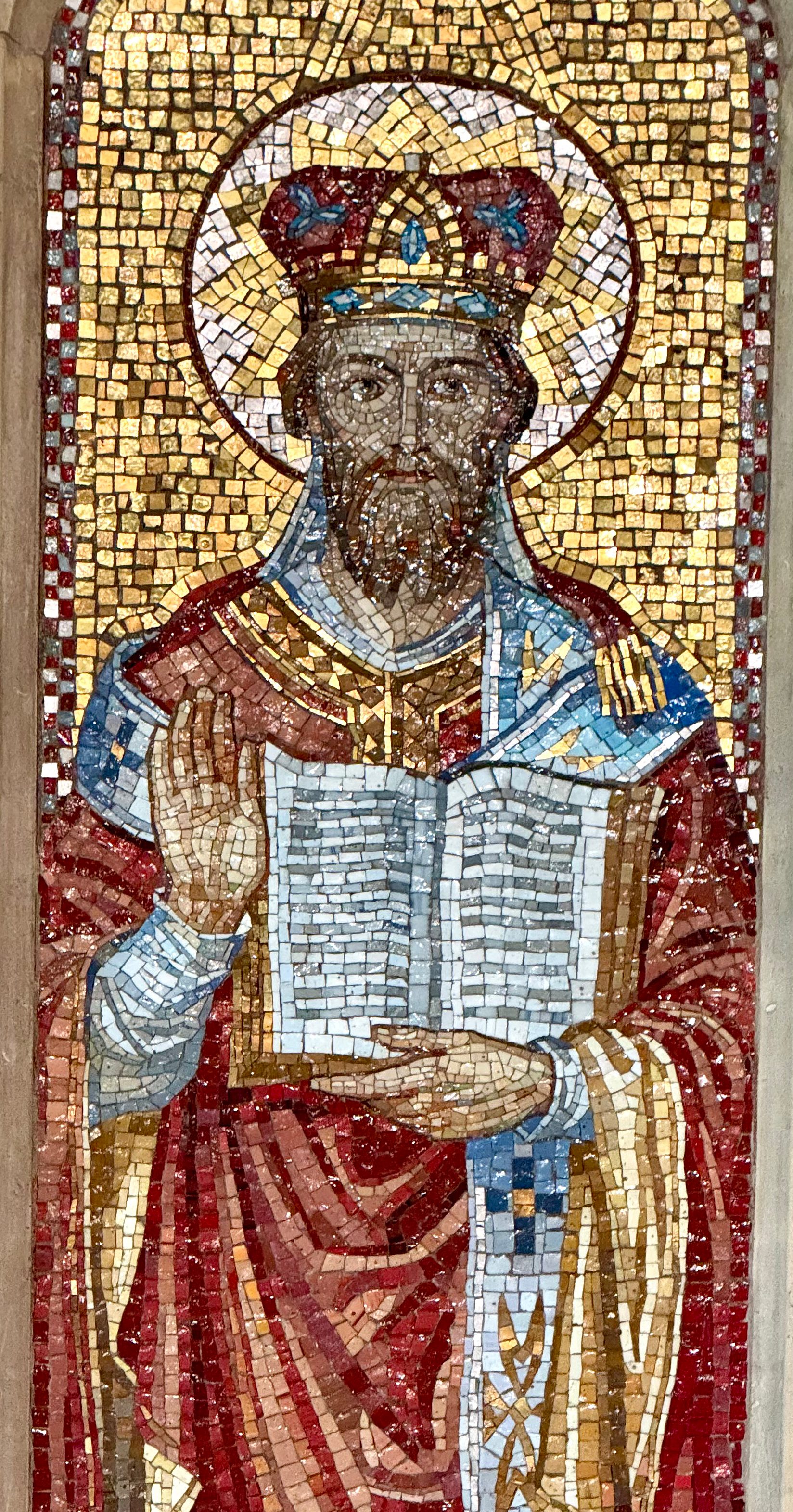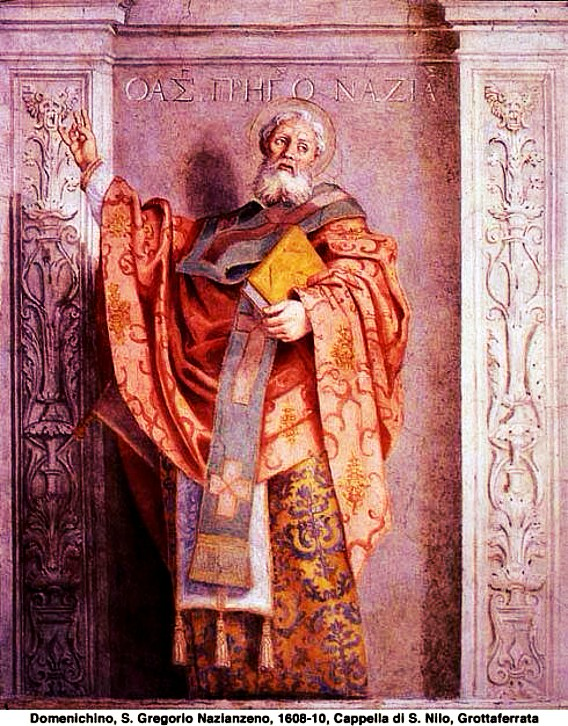Report on St. Gregory of Nazianzus
Introduction
St. Gregory of Nazianzus (c. 329–389 AD), also known as Gregory Nazianzus, is one of the most significant theologians and Church Fathers of the early Christian Church. Revered for his theological writings, orations, and influence in shaping Christian doctrine, Gregory is celebrated especially for his contributions to the development of Trinitarian theology. He is known as one of the “Cappadocian Fathers”—along with his friend and theological partner, St. Basil the Great, and his younger contemporary, St. Gregory of Nyssa—who played a pivotal role in articulating and defending orthodox Christian beliefs in the face of numerous heresies that threatened the unity of the early Church.
Gregory’s life, writings, and legacy have had a lasting impact on Christian theology, particularly in the areas of the nature of God, the Trinity, and the relationship between the divine and the human in Christ. His eloquent speeches, theological insight, and deep spirituality earned him the title The Theologian in the Eastern Church, a title that reflects his profound understanding of Christian doctrine.
Early Life and Education
Gregory was born around 329 AD in the small town of Arianzus (modern-day Turkey), in the region of Cappadocia. He was the son of Gregory the Elder, a bishop, and Nonna, who were both devout Christians. Raised in a deeply religious household, Gregory received a classical education in rhetoric, philosophy, and literature, which prepared him for his later theological career.
Initially, Gregory followed a path of secular studies and, after completing his education in Cappadocia, he traveled to the cities of Caesarea, Alexandria, and finally Athens, where he studied under the great philosophers and thinkers of his time. It was in Athens that he became friends with Basil the Great, another major figure in the development of Christian doctrine. This friendship would shape both of their careers and their shared commitment to orthodoxy.
Religious Life and Clerical Career
After completing his studies, Gregory briefly returned to his family home, where his father, Gregory the Elder, encouraged him to pursue a religious vocation. Though initially hesitant, Gregory eventually accepted his calling to the priesthood. He was baptized and ordained as a deacon by his father. In 362 AD, Gregory was ordained as a presbyter (priest), despite some reluctance on his part to take on such an official role in the Church.
Gregory’s early ministry, however, was marked by a sense of internal conflict and deep spiritual struggle. Although he was a brilliant theologian and preacher, he felt inadequate to the demands of church leadership. At this time, Gregory’s relationship with Basil the Great became crucial. Basil urged Gregory to embrace his calling and supported him in his theological and pastoral endeavors.
Patriarch of Constantinople and Theological Contributions
Gregory’s major contribution to the Church came when he was appointed as the bishop of Constantinople in 379 AD. At this time, the city was embroiled in theological conflict, particularly over the nature of the Trinity and the divinity of the Holy Spirit. Gregory’s theological writings and preaching played a crucial role in the defense of Nicene orthodoxy against Arianism and other heretical beliefs.
1.The Trinity: Gregory’s most significant theological work focused on the doctrine of the Trinity. He was a key figure in the development of Trinitarian theology, particularly in his efforts to defend the Nicene Creed (which affirmed the divinity of the Son, Jesus Christ) and to articulate the full divinity and distinct personhood of the Holy Spirit. Gregory’s work was central to the clarification of the relationships among the Father, Son, and Holy Spirit, and he contributed significantly to the theological discussions that led to the conclusion of the First Council of Constantinople in 381 AD. At this council, the Nicene Creed was expanded to affirm the divinity of the Holy Spirit.
2.Theological Orations: Gregory is best known for his theological orations, particularly the Five Theological Orations he delivered in Constantinople. These orations, which addressed key issues in Christian doctrine, helped to articulate and defend the Church’s understanding of the nature of God and the Trinity. His orations are known for their eloquent style, theological depth, and intellectual rigor. In these orations, Gregory explained the relationship between the Father, the Son, and the Holy Spirit in ways that became foundational for later Christian thought.
3.Christology and the Nature of Christ: In addition to his work on the Trinity, Gregory also contributed to the development of Christian thought on the nature of Christ. Gregory strongly affirmed the full humanity and full divinity of Jesus Christ, rejecting any form of docetism (the heresy that Christ only appeared to be human) and emphasizing the mystery of the Incarnation. Gregory’s Christological views helped to lay the foundation for the later development of the doctrine of the Hypostatic Union, which teaches that Jesus Christ is both fully God and fully human.
Opposition and Retirement
Gregory’s time in Constantinople was marked by significant opposition. He faced challenges not only from heretical groups but also from within the Church, particularly from those who disagreed with his theological views or resented his leadership. After a period of intense conflict, Gregory resigned from his position as bishop of Constantinople in 381 AD. He retired to his native Cappadocia, where he focused on writing and contemplation.
Despite his retirement, Gregory’s influence remained substantial. He continued to engage in theological debates and to write extensively. His letters, hymns, and orations contributed to the ongoing development of Christian doctrine in both the Eastern and Western Churches.
Writings and Theological Legacy
St. Gregory of Nazianzus is renowned for his theological and spiritual writings. His contributions to Christian thought are vast, and his works remain central to the study of early Christian theology.
1.Orations: His Five Theological Orations are among his most important works. These orations were delivered in Constantinople, where he sought to clarify and defend the Nicene faith against Arianism and other heresies. These orations remain essential texts in the study of Trinitarian theology.
2.Letters: Gregory’s letters provide valuable insights into his personal life, his relationships with other theologians, and his views on the Church’s role in society. These letters reveal his deep concern for the moral and doctrinal purity of the Church and his commitment to defending orthodoxy.
3.Hymns and Spiritual Writings: Gregory also wrote numerous hymns and spiritual works, many of which continue to be used in liturgical settings. His hymns often focus on the nature of God, the mystery of the Trinity, and the Incarnation of Christ.
4.Christology: Gregory’s work on the nature of Christ and the Trinity influenced later theologians, including St. Augustine, and contributed significantly to the theological developments that culminated in the Council of Chalcedon in 451 AD. His theological insights were critical in shaping the understanding of Christ’s dual nature and the relationship between the persons of the Trinity.
Legacy and Canonization
St. Gregory of Nazianzus is venerated as a saint by both the Eastern Orthodox and Roman Catholic Churches. His feast day is celebrated on January 25 in the Eastern Church and May 9 in the Western Church (as one of the Three Hierarchs, along with Basil the Great and John Chrysostom). He was declared a Doctor of the Church by Pope Benedict XIV in 1754 in recognition of his profound contributions to Christian theology.
Gregory’s legacy endures in the theological traditions of both the East and West. His defense of the Nicene Creed, his articulation of the doctrine of the Trinity, and his emphasis on the full divinity and humanity of Christ shaped the direction of Christian doctrine in the centuries following his death. His eloquent style and spiritual depth have made his writings a source of inspiration for generations of Christians.
Conclusion
St. Gregory of Nazianzus stands as one of the greatest theologians and preachers of the early Christian Church. His contributions to Trinitarian theology, Christology, and the understanding of the nature of God continue to influence Christian thought and doctrine. As a theologian, a bishop, and a preacher, Gregory helped to define the theological landscape of the early Church and played a pivotal role in defending the orthodox faith. His legacy, both in terms of his theological insights and his pastoral care, remains a beacon of Christian wisdom and devotion.






